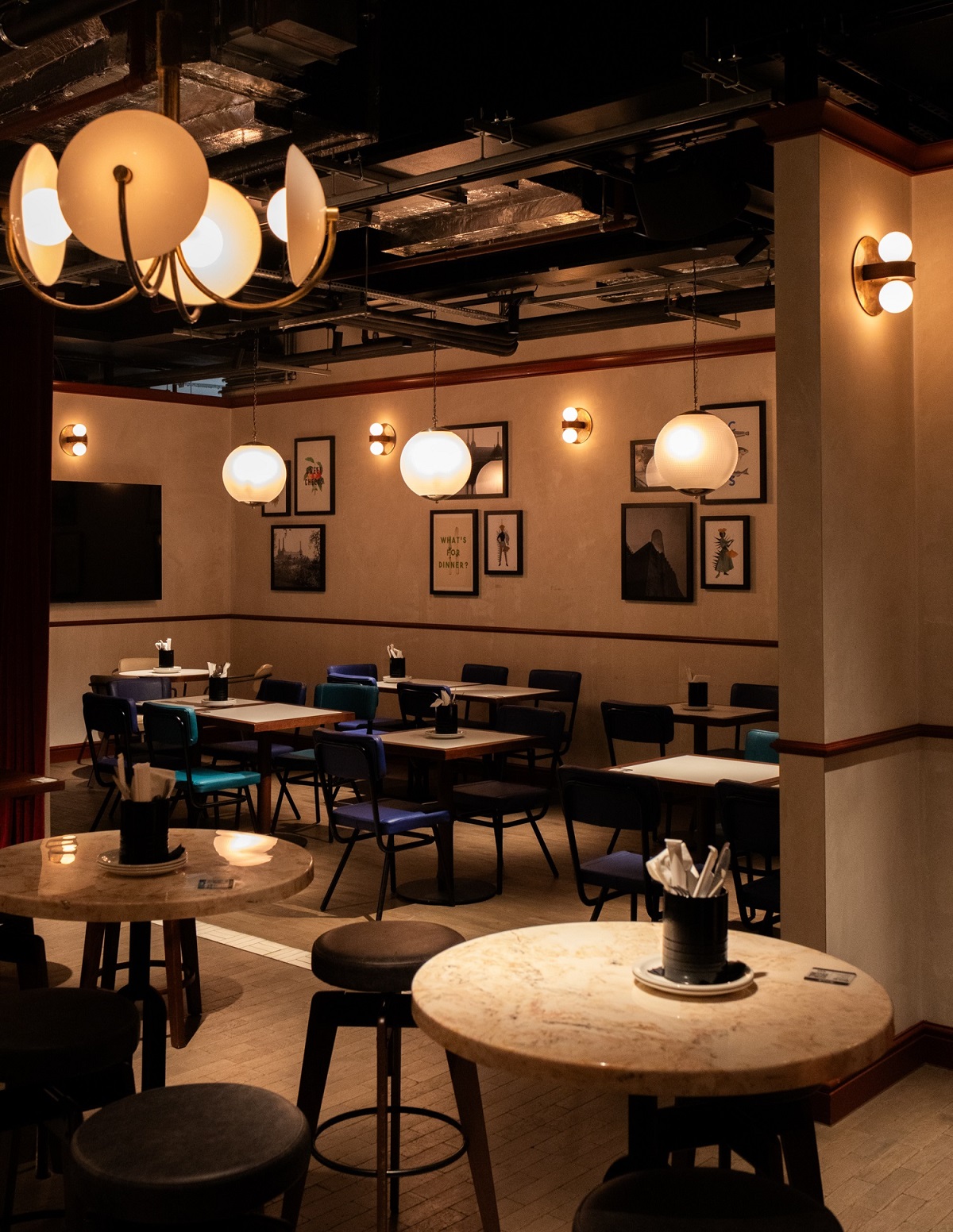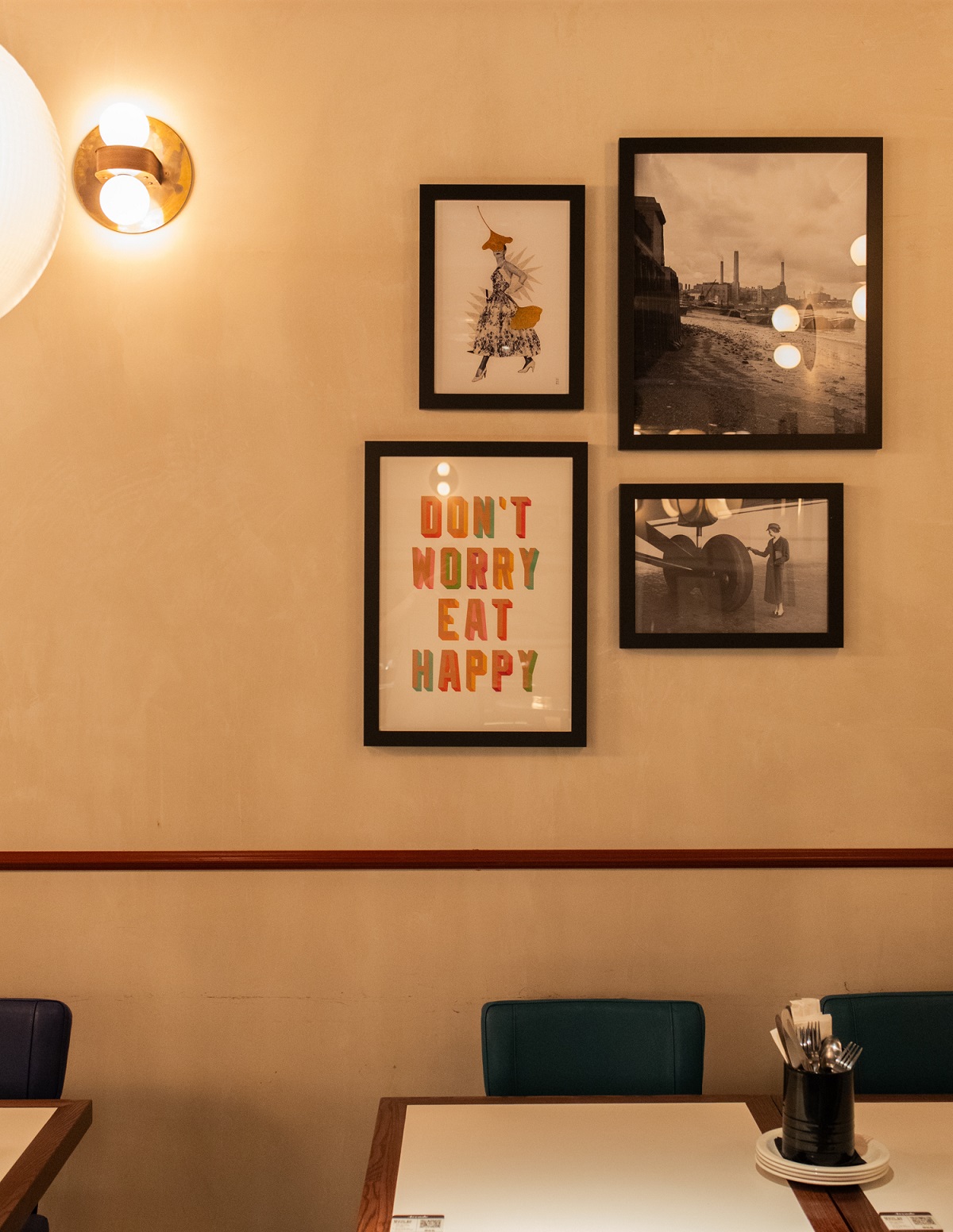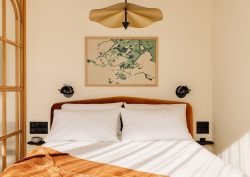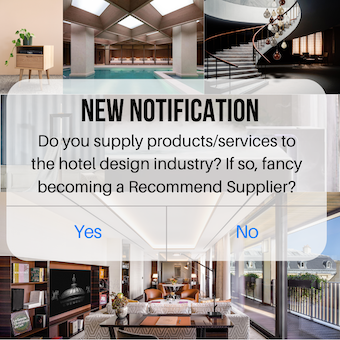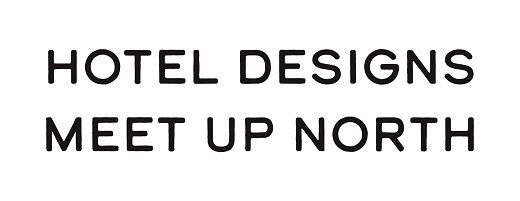International art agency Artiq curates art collections and cultural experiences around the world – its diverse portfolio of creative practitioners include those who have embraced and elevated technology and the digital experience, a perfect fit for Arcade’s latest Battersea location…
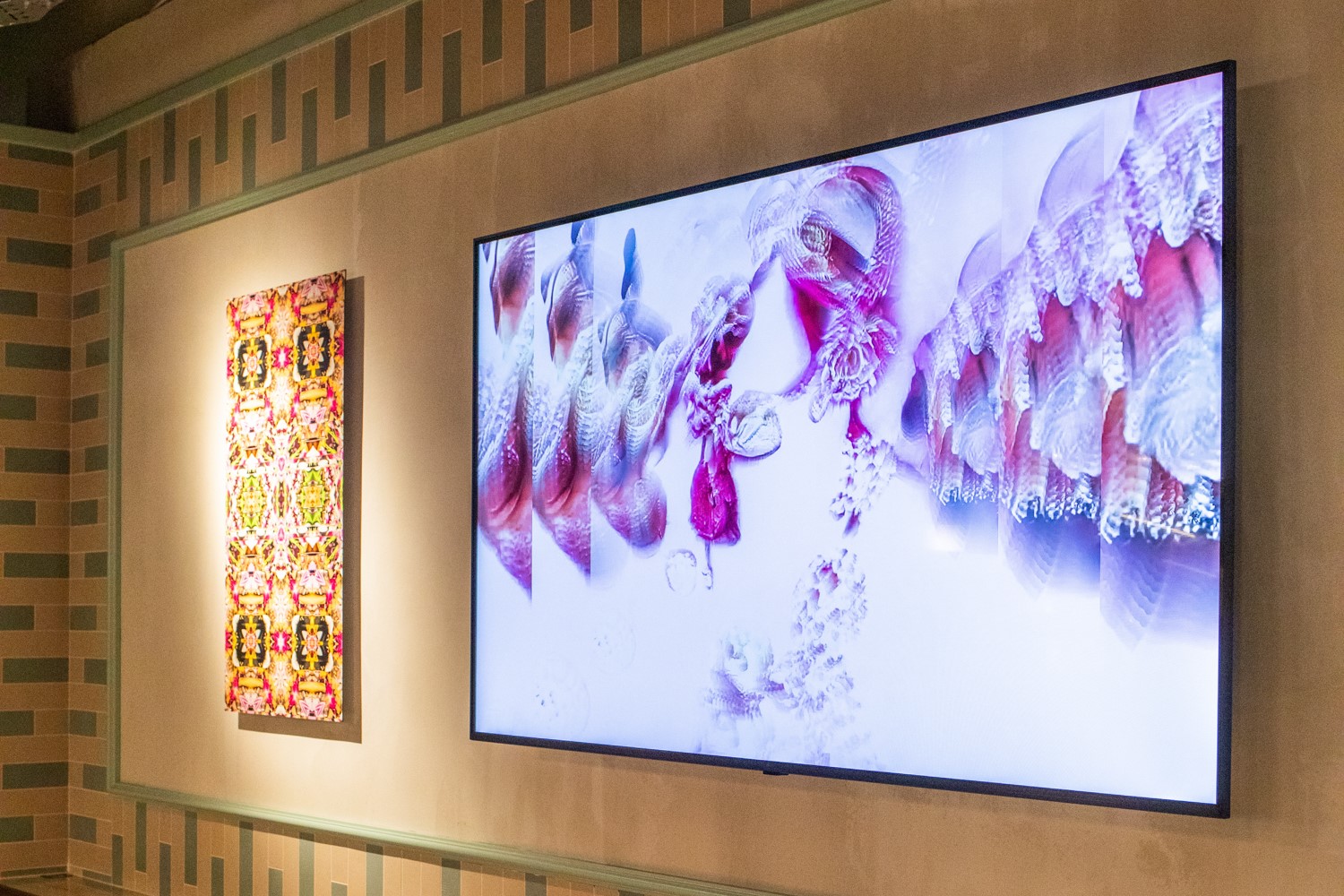
Arcade Food Hall’s newest location, in the heart of the restored Battersea Power Station, is an iconic Grade II listed building built in the 1930s. The monumental makeover of this cultural landmark as one of the world’s biggest brick buildings, is notable for its original Art Deco interior fittings and décor. This is something that Artiq wanted to honour when curating an art collection for Arcade, a contemporary food hall offering a modern approach to dining.
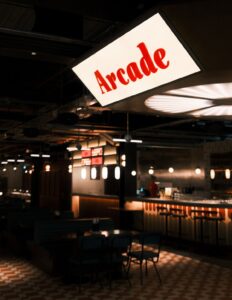
Image credit: Artiq
The Artiq team worked closely with Red Deer Architects to curate a leased collection for Arcade’s Battersea location, ensuring that the artwork complements the mid-century interior design tones and pays homage to the industrial history and aesthetic of the power station while also offering bright, dynamic compositions inspired by the Pop era. Combining archival photographic images with the work of emerging artists – Betty Leung, Matthew Curtis-Knight, and Rocio Romero – this collection highlights Battersea Power Station’s Art Deco past alongside references from the visually impactful contemporary era.
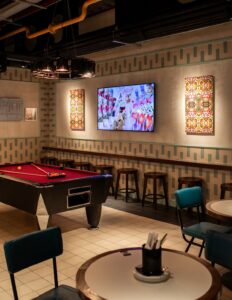
Image credit: Artiq
Betty Leung’s digital work, Interpreting Relations III, is looped on a large display panel, bringing energy and movement into the space. Betty Leung is a contemporary London-based artist who uses AI tools and algorithms to create hybrid imagery that explores the tension between chance and control, influence and bias. Her practice is concerned with social, economic and political complexities in the context of human behaviour; each piece embodies fragments of the artist’s identity, including the migration experience.
Working across different media, from textile to video art, Betty is most interested in the creative misuses of AI and Machine Learning systems. She engages with these systems in unintended ways, subverting their productivity and recontextualising their output. For Betty, these AI systems are sometimes used as a tool in her practice, in the same way a camera is for a photographer, while other times she considers them a collaborator.
The dynamic between the human and the digital is a subtle parallel to Arcade and its mode of operation. Ordering is done via a QR code, an innovative direct-to-table ordering system that has revolutionised the hospitality industry. A tool – or collaborator – this trend is growing exponentially in hotels as well. In this touchless era, digital tech adaptations in hospitality might be a successful strategy for brands at a lower price point whose guests want an instant check-in experience with minimal interaction. It’s also an argument for businesses wishing to put sustainability at the fore, as increasing digital processes tends to lead to lower CO2 emissions.
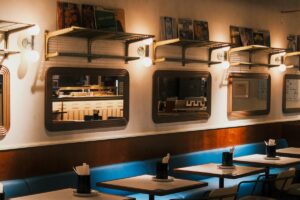
Image credit: Artiq
Despite designed to serve 500-seated guests in a fast and fluid manner, the feeling at Arcade Battersea is personable, intimate and with a lot of character, thanks to the considered interiors, passionate traders and the unique art.
This collection tells the story of the city’s past while creating opportunities to support its future. The fact the artwork is leased will allow Arcade to bring new voices into its space, supporting a growing network of creative talent while rotating the art on its walls. It offers a chance to financially support the creative practices of emerging London-based talent, putting their work on display within a building invaluable to London.
Artiq is one of our Recommended Suppliers and regularly features in our Supplier News section of the website. If you are interested in becoming one of our Recommended Suppliers, please email Katy Phillips.
Main image credit: Artiq






